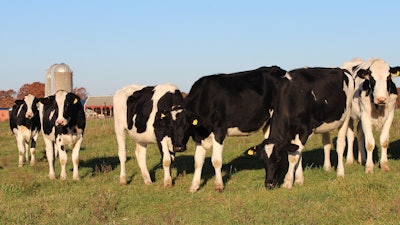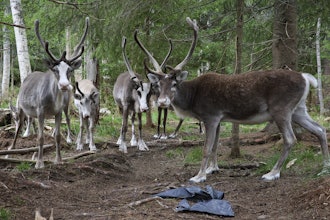
“We hope our findings may encourage a more sustainable and responsible food consumption,” explains postdoc Roi Mandel Briefer at the University of Copenhagen.
Contrary to what one might think, dairy cows and other dairy cattle are likely to experience worse welfare than their counterparts in beef herds, raised solely for meat.
The results stem from a new international study headed by UCPH, where Roi Mandel Briefer from the Department of Veterinary and Animal Sciences collaborated with colleagues from Wageningen Livestock Research, Royal Veterinary College in London, University of Bristol and Humboldt-Universität in Berlin.
The researchers asked 70 leading bovine welfare experts from around the world to assess the welfare risks of the most common production systems in their country.
“The welfare is worse with cattle in the most common dairy production systems in opposition to cattle in the most common beef production systems. These findings contradicts a very long and widely held belief in our society,” said Briefer.
It is the first time that these predictions are being tested, validated and published.
Experts’ ratings addressed all main aspects of welfare related to the animals’ basic health and functioning, feelings and their ability to engage in natural behaviors.
“The higher welfare risk in the dairy sector is not limited to dairy cows – defined from first calving onwards –, but also, to their calves. Experts rated the welfare risk of calves originating from dairy herds to be higher than that of calves originating from beef herds, regardless of the production goal, be it for red-meat, veal, or to replace the dam,” said Briefer.
The researchers expect that the welfare assessment is the same in organic production, since dairy in organic production is also used for more than milk — the key reason for the worse welfare.
Raising dairy animals in better conditions may certainly improve their welfare in some contexts, said Briefer.
“However, if such measures are similarly applied to bovines in the beef herds, then they may retain their perceived higher welfare status."






















